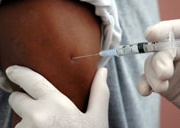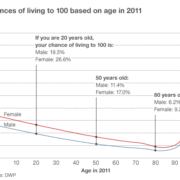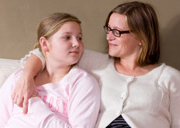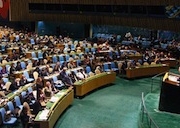The global burden of disease – let’s not forget the spiritual dimension

Yesterday saw the publication of a landmark, multicentre collaborative study on the global burden of disease. It suggests that while average life expectancies around the world have gone up – they have gone up more in the West than in the developing world, and worldwide they come with more years of poor health and disability. Richard Horton of the Lancet has quite rightly called for disability to be a greater focus for future development and global health goals.
The major causes of death have changed significantly over the last few decades, with most communicable diseases more controlled than ever before. It is the non-communicable diseases (cancer, heart disease, diabetes and, increasingly, mental illnesses), that are causing the greatest problems, and many of these are lifestyle related. Illnesses related to alcohol, lack of exercise, tobacco usage and poor diet top the league tables for morbidity and mortality, it would seem. HIV, TB and malaria remain significant problems, but between them account for fewer deaths than either heart disease or cancer.
Today another report highlights that there has been a marked increase in rickets and other illnesses related to Vitamin D deficiency in the UK. While it has long been recognised that Britons of South Asian, African and Caribbean descent are most at risk, over half of white Britons are also showing signs of Vitamin D deficiency. As 90% of Vitamin D is manufactured in the body due to exposure to sunlight, the cause would seem to be our increasingly indoor lifestyles rather than diet.
Western working patterns (indoors, sedentary) and leisure habits (ditto), as well as our increasingly poor diets and over availability of calories, alcohol and tobacco seem to be the major contributors to these emerging disease patterns. As we have blogged here before, commercial concerns as well as personal choices and social forces all collude together to damage our health.
The report also shows that mental illness is a growing problem, suggesting that there are wider social (and, dare I say, spiritual) issues to attend to. Are we seeing the Western tendency for social isolation, individualistic autonomy and alienation being replicated in previously more communitarian cultures? We can certainly see an increasing trend worldwide towards alcohol abuse, especially in Eastern Europe.
It seems that as we defeat one set of illnesses – particularly the main infectious diseases – so we open up the doorway to other forms of human misery and suffering, many of them self-inflicted. While this is going to be the major headache for health policy makers in the coming decade (along with an alarming emergence of drug resistant infectious diseases), it certainly makes me stop and reflect on how many of the problems we face are at least in part attributable to a spiritual malaise.
The WHO has recognised that spirituality and faith are a vital aspect of health. Anxiety, depression, substance abuse (including alcohol and tobacco), dietary habits, exercise patterns, social and personal capital, are all affected by our beliefs, values and religious practices, as individuals and societies.
For instance fasting, a significant part of many spiritual disciplines, turns out to have a genuine physical health benefit; being part of a community of believers and having a strong personal faith seem to have protective benefits against a number of illnesses, and to be a significant factor in recovery from illness and surgery, etc. It is a complex subject, and there is not always a straightforward, nor an always positive link, nevertheless the body of research on the interaction between faith and health is growing and we neglect the spiritual dimensions of health at our peril.
There is a lot to digest in this report, and it will be vital in helping us think about how we shape the future priorities in global health policy – but let us remember the spiritual dimension when we shape such policies.












Leave a Reply
Want to join the discussion?Feel free to contribute!